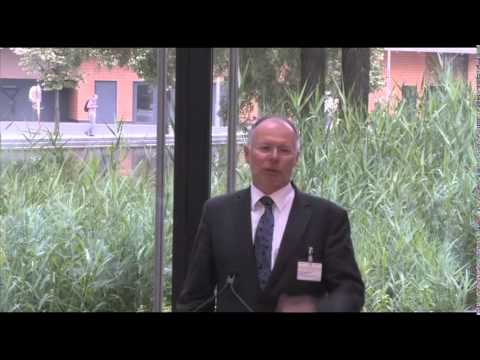At the recent Berlin launch of IFPRI’s Global Food Policy Report, IFPRI Director General Shenggen Fan said eradicating hunger by 2025 is an important ethical and economic goal—and one that can be achieved.
Five expert panelists and more than 100 attendees gathered at the Berlin Representation of the German development organization GIZ to discuss concrete actions to move the world closer to that goal, within the context of the broader post-2015 development agenda.
Stefan Schmitz of the German Federal Ministry for Economic Cooperation and Development (BMZ) also took the opportunity to highlight the country’s new food security policy, “A World without Hunger.” As part of this initiative, Germany will spend at least € 1 billion on innovations in agriculture, structural change, rural development and resource protection, access to land and other natural resources, and more.
Other panelists—representing NGOs, the private sector, and academia—shared their suggestions for how that investment could be best used. Rafaël Schneider of German Agro Action emphasized the need for country- and site-specific solutions. Tassilo Galitz of the chemical company BASF stressed the importance of context-specific technologies and the role of partnerships, and Dirk Messner of the German development institute DIE underlined the role of both technical and social innovations to, for example, avoid food waste.
The panelists also emphasized the importance of mainstreaming resilience into projects and policies for achieving the 2025 goal, the key topic of a recent IFPRI 2020 conference supported by Germany.
In his closing remarks, GIZ Managing Director Hans-Joachim Preuss reiterated the call for action to eradicate hunger and malnutrition by 2025, and challenged the audience to think of solutions to achieve this goal in fragile and conflict-affected countries.







